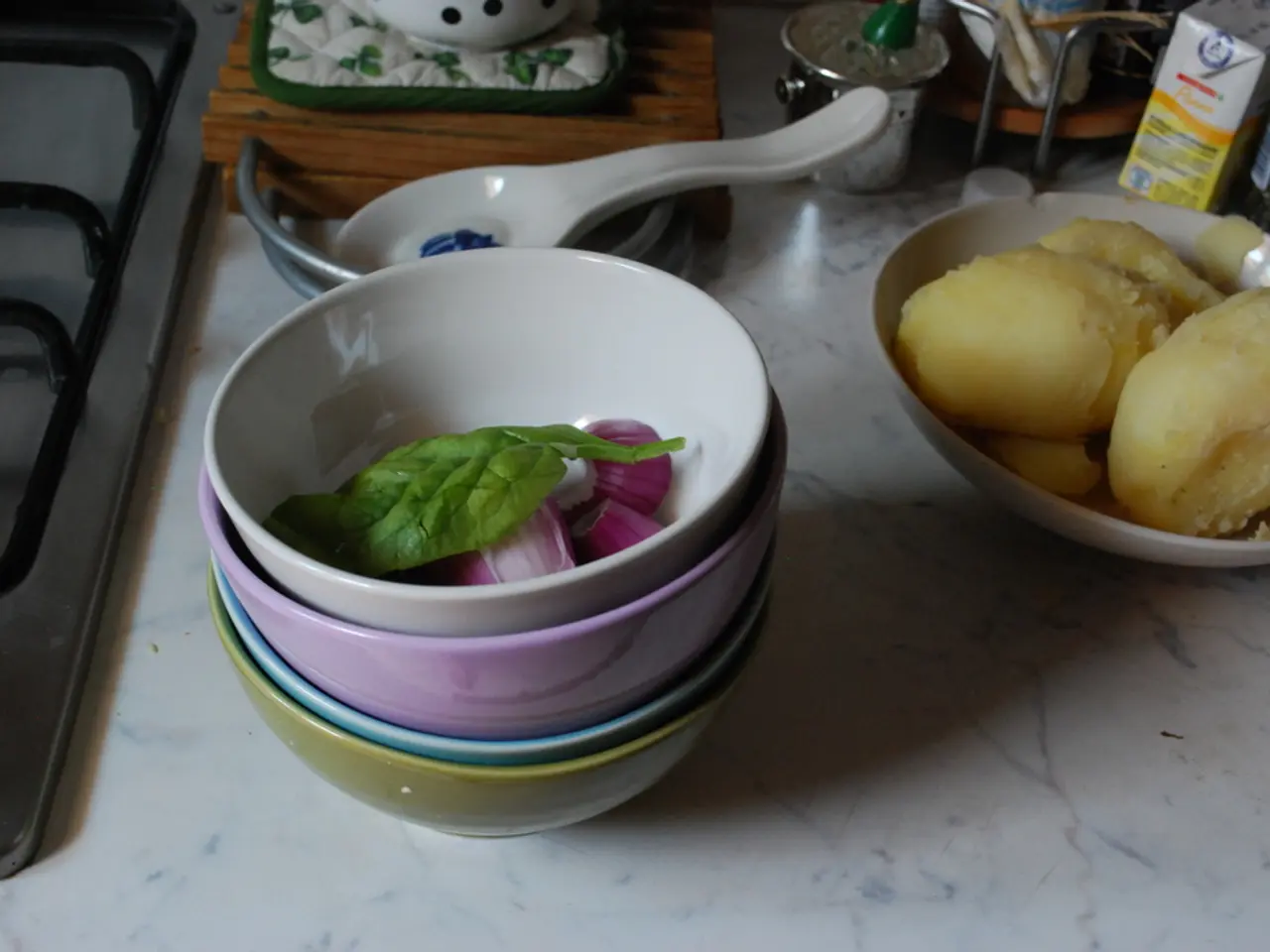Navigating digestive health during travel: A gut expert's recommended trick to prevent constipation in adults and children alike.
Traveling can often disrupt our daily routines, including our eating habits and digestion. To help maintain gut health and prevent constipation during travel, gastrointestinal dietitian Lucy Kerrison offers some valuable advice.
First and foremost, Kerrison recommends starting with small portions of new foods to minimise the impact on the gut microbiome and the body's natural circadian rhythm. This advice is crucial, especially when venturing into unfamiliar culinary territories.
Staying hydrated is another essential aspect of maintaining gut health while traveling. Kerrison advises drinking plenty of water throughout the day to support digestion and stool softening. For added hydration, an electrolyte powder can help the body absorb fluids more effectively.
In terms of diet, Kerrison encourages maintaining a fibre-rich diet by incorporating fruits, vegetables, whole grains, and legumes when possible. This is particularly important when on the go, as it helps ensure a balanced and nutritious intake.
To keep bowel movements regular, Kerrison suggests maintaining a consistent eating schedule, even in the face of changes in routine or time zones. Additionally, physical activity is key to stimulating bowel motility during long travel periods. A brisk walk or some stretching exercises can work wonders.
It's also important to avoid excessive consumption of constipating foods like processed foods, excessive dairy, or alcohol. Instead, opt for a more balanced diet to promote regularity.
Managing stress and sleep patterns is equally important. Psychological stress and jet lag can impact gut function, so it's essential to prioritise rest and relaxation where possible.
When it comes to the gut microbiome, Kerrison recommends diversifying it with a small amount of local fermented food, such as miso, natural yoghurt, or kefir, if the stomach can tolerate it. However, she urges people to ensure that any fermented food is from a clean, trusted source.
Lastly, Kerrison advises sticking to usual eating habits and mealtimes while traveling. This consistency can help maintain balance in the gut microbiome and prevent any unwanted disruptions.
The National Health Service (NHS) also offers additional tips for increasing daily fibre intake, such as consuming foods like Weetabix, Shredded Wheat, porridge, wholemeal bread, wholewheat pasta, high fibre white bread, brown rice, pulses like chickpeas, bananas, broccoli, and other vegetables.
Incorporating these tips into your travel routine can help ensure a smoother digestive journey and a happier gut. For more specific advice from Lucy Kerrison, further searching on dietary or health websites or interviews featuring her might be necessary.
- Traveling can challenge our dietary routines and consequently affect our digestion; gastrointestinal dietitian Lucy Kerrison suggests starting with small portions of new foods to minimize such impacts on the gut microbiome and the body's natural rhythm.
- Kerrison stresses the importance of staying hydrated during travel, recommending regular water consumption to support digestion and stool softening, and using an electrolyte powder to improve fluid absorption.
- In terms of diet, Kerrison advocates consuming a fibre-rich diet, with fruits, vegetables, whole grains, and legumes, to ensure a balanced and nutritious intake, especially when traveling.
- To maintain regular bowel movements, Kerrison advises maintaining a consistent eating schedule, engaging in physical activity, and avoiding constipating foods like processed foods, excessive dairy, and alcohol.
- For a diverse and healthy gut microbiome, Kerrison recommends consuming a small amount of local fermented food, such as miso, natural yogurt, or kefir, but assures that the food should be from a clean and trusted source.




